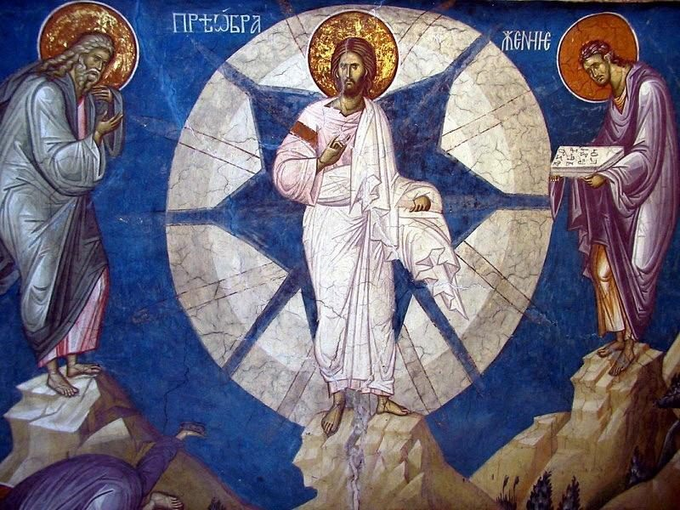Since it's come up again, let's remember the Orthodox doctrine that the Son of God is autotheos (αὐτόθεος), and not merely divine by participation. 🧵
11
24
157
Replies
1. The word "autotheos" itself is not difficult.
The word means literally "self-God", i.e. "God himself" or "God itself".
It is formed by the composition of:
– αὐτό- = self-
– Θεός = God
(As such, αὐτόθεος corresponds exactly to the Slavonic terms самобогъ.)
2
2
29
2. The word autotheos first appeared in the heterodox writings of Origen of Alexandria, in particular in his Commentary on the Gospel of St John 2.2 (PG 14.109A).
In this text, Origen set forth a heretical understanding of the relation of God the Son to God the Father.
1
0
17
According to Origen, to be autotheos is to be God in the principal sense (κυριώτερον).
But the Son, he said, is not God in this sense. Rather, the Son is only God *by participation* in the divinity of the Father (μετοχῇ τῆς θεότητος).
And therefore the Son is not autotheos.
1
0
20
3. It was against this proto-Arian doctrine that St Epiphanius of Salamis stated the classical Orthodox doctrine of the Son as autotheos.
Far from being divine merely by participation, the Son is divine by nature, and therefore is autotheos:
1
1
26
Similarly, in a text that would be frequently quoted in later Byzantine theology, St Dionysius the Areopagite affirmed the common divine nature to be autotheos (i.e. itself divine), in contrast to the participated deification of creatures:
1
1
24
4. Unfortunately, in later Latin theology, the word "autotheos" began to be misunderstood, with numerous theologians (both Catholic and Protestant) erroneously understanding the word to mean "God from himself", rather than "God from another".
1
1
17
Cf. the following thread for a good example of a discussion which presumes this definition:
1
0
18
This misunderstanding of the term autotheos creates a new problem, making the affirmation of the Son's being autotheos amount to saying that the Son is God "from himself", and not from the Father.
1
0
17
The result was a certain amount of artificial hysteria.
E.g. The Catholic theologian Gilbert Génébrard even invented a new charge of heresy, labelling as "autotheanites" those who unheld the doctrine of the Son as autotheos.
Cf. Bellarmine's comment:
1
0
15
5. Yet from an Orthodox point of view, it must be understood that this whole question of supposed "autotheanite" heresy rests on a confused misunderstanding of the term αὐτόθεος.
(Something indeed recognised at the time by wiser Catholic heads, such as Gregory of Valencia.)
1
0
18
Most basically, to say that the Son is autotheos is to say that he is God by nature, not merely divine by participation.
But to say that the Son is by nature God is not to deny that he is begotten of the Father.
This has always been the doctrine of the Orthodox Church.
2
2
23
7. By contrast, it is noteworthy how often the opponents of the doctrine of the Son as autotheos — including those who style themselves as Orthodox! — end up affirming positions which revert back to the proto-Arianism rejected by the Church when it refused to follow Origen. E.g.:
2
0
19
@maksimologija
What then is the term that distinguishes the Father as the only ungenerated hypostasis?
1
0
2
@Katapetasma2
Patristic terms include, e.g. ἀγέννητος, ἄναρχος, ἀναίτιος (unbegotten, without principle, without cause.), etc.
1
0
5
@maksimologija
This is good. And I think the definition you're using corresponds to what we call aseity (aseitas) and affirm for the Son and the Holy Ghost in our theology. And we both agree that the Father alone has the property of innascibility, since he is the principle without a principle.
1
0
14
@Scholastic_X
Yes, leaving aside questions of terminology, there's isn't a material difference between Orthodox and Catholic theology on this point.
The real problem lies with some strands of (soi-disant) Orthodox theology. 1/3
1
0
6
@maksimologija
I have a question: If saying the Son is “autotheos” is basically to say the Son is God by nature does that mean that there is a way in which the term “autotheos” is common to all three persons and yet in another way it is common to the Father alone?
1
0
0
@hoodtheodicy
Not really, because there isn't a sense in which the Father is "God by nature" but the Son and Spirit are not.
1
0
3
@maksimologija
great thread as always. really contributing something new by going back to the fathers directly, and letting them speak for themselves
1
0
2












